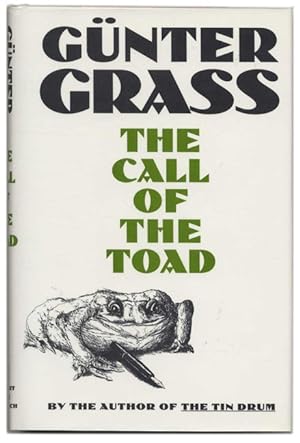Synopsis
A German art historian and a Polish art restorer meet in Gdan+a7sk and go into business together returning the remains of Germans exiled after the war to Danzig. By the author of Two States--One Nation. 15,000 first printing.
Reviews
Macabre humor and deft narrative control spice this doleful, satiric tale of love, mortality and politics in a changing Eastern Europe from the pen of the contemporary German master. When Alexander Reschke first meets Alexandra Piatkowska, she is on her way to a cemetery in Gdansk, Poland. The two discover they have much in common: she is a middle-aged Polish widow, he a German widower; she is an art restorer specializing in gilding, he a professor of art history specializing in tombstones; both were displaced from their birthplaces by the redrawing of borders after WW II; both champion the deceased's right to be returned home for burial. As their romance quickly blooms, so do their shared ambitions; over a bottle of wine they found the Polish-German-Lithuanian Cemetery Association (PGLCA). Soon they have an international board of directors and acres of burial land in Gdansk, and the corpses of dead Germans (born there when it was Danzig, Germany), along with the survivors' mighty Deutschemarks, are sent their way in daunting quantities. But the forces of capitalism overwhelm the pair's good intentions, and they find themselves building resorts and golf courses on the would-be burial ground. Grass ( The Tin Drum ; Two States--One Nation? ) tells their story in the voice of Alexander's former schoolmate, who has been commissioned to write a history of the PGLCA. This insightful, reluctant narrator cites photographs, recordings, videotapes, receipts and Alexander's diaries--interjecting the occasional editorial remark--to portray a strange love affair and odd benevolence gone awry.
Copyright 1992 Reed Business Information, Inc.
Grass's latest novel represents a master in a minor mode, no Flounder -like dissertations ( LJ 9/1/78), just a (nearly) straight narrative about love, German-Polish relations, and the future of Europe and the world. Alexander, a German art history professor, and Alexandra, a Polish art restorer, meet in Gdansk over a basket of mushrooms. They eventually found the German-Polish-Lithuanian Cemetery Society to allow people expatriated at the end of World War II to be buried in their native soil. The Society thrives, spinning off subsidiary ventures until it seems like the Germans will again take over their former territories by dint of their hard currency. But Mr. Chatterjee, a bicycle-rickshaw mogul, acts as a counterweight, presaging a possible Indian/Asian transformation of old Europe. Essential for any fiction collection.
- Michael T. O'Pecko, Towson State Univ., Md.
Copyright 1992 Reed Business Information, Inc.
"About this title" may belong to another edition of this title.
